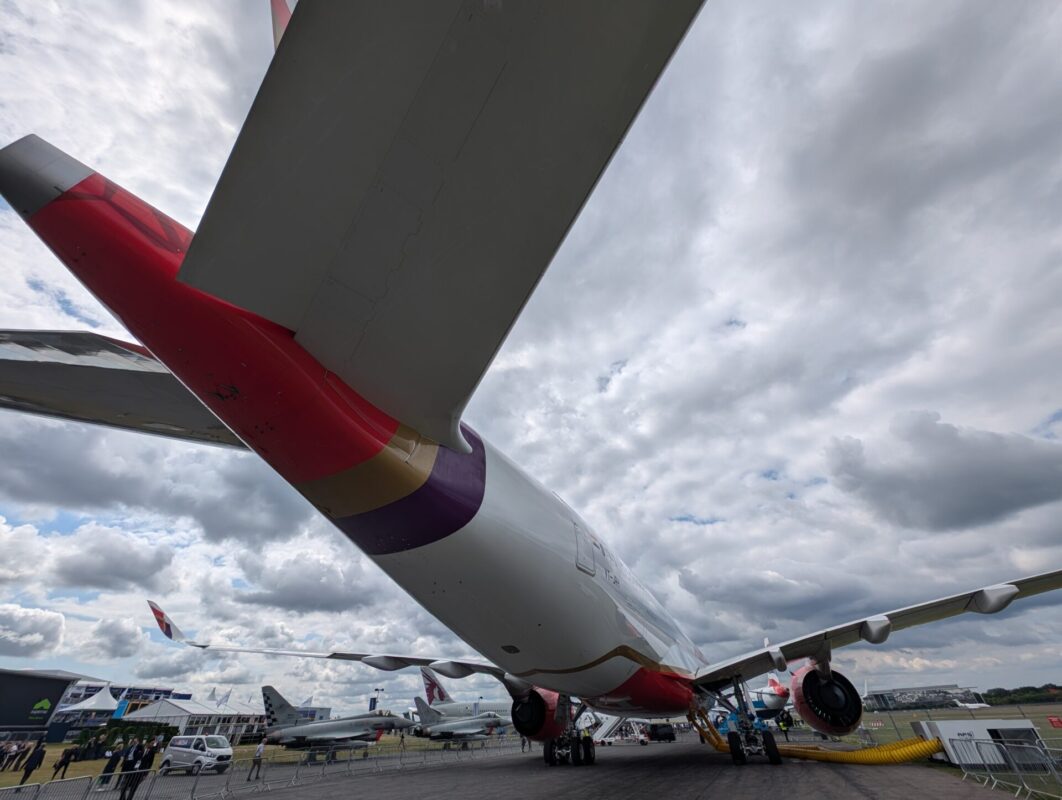CoMech can provide UKAS or traceable calibrations for our customers within the aerospace sector.
In the aviation industry, accuracy and precision are paramount. Calibration of instruments and equipment is a critical factor in ensuring the safety, reliability, and performance of aircraft systems and for items within a plane. For aviation businesses in the UK, two key types of calibration services are available: traceable calibration and UKAS calibration. Each serves distinct purposes, and knowing the differences can help ensure that your operations comply with industry regulations, including those set by the Civil Aviation Authority (CAA).
The Role of Calibration in the Aviation Industry
Calibration ensures that the measuring instruments used in aviation, from altimeters to pressure gauges, are accurate and reliable. Even a slight deviation in instrument readings can have serious implications for aircraft safety, making regular calibration a vital part of the maintenance schedule.
Given the stringent safety and regulatory standards set by aviation authorities, such as the International Civil Aviation Organisation (ICAO) and the Civil Aviation Authority (CAA), aviation businesses must select the appropriate level of calibration for their equipment. Both traceable and UKAS-accredited calibration are widely used, but their applications and levels of certification differ significantly.
Our technical manager, Antony Deakin, explains the difference between them below.
UKAS Calibrations for Aerospace
UKAS calibration is accredited by the United Kingdom Accreditation Service (UKAS), the UK’s sole accreditation body for calibration laboratories. UKAS calibration is essential for equipment that must meet the stringent requirements of aviation regulators such as the CAA. The CAA mandates that certain critical instruments be calibrated in accordance with ISO/IEC 17025, a globally recognised standard for calibration and testing laboratories.
Key Features of UKAS Calibration for Aviation:
CAA Compliance
UKAS calibration is often required to meet the Civil Aviation Authority’s strict regulatory standards, ensuring the safety and reliability of flight-critical systems. It provides proof that the calibration meets the ISO/IEC 17025 standard, which is critical for passing CAA audits.
Accredited Certification
A UKAS calibration certificate offers more than traceable calibration; it provides independent verification that the calibration has been conducted in an accredited lab with rigorous quality controls.
Critical Applications
UKAS calibration is necessary for aviation systems that directly affect safety and performance, such as flight instruments (for example altimeters, airspeed indicators, and gyroscopes), avionics, and engine testing equipment.
Uncertainty of Measurement
UKAS calibration includes a detailed assessment of the uncertainty of measurements, offering higher confidence in the precision and accuracy of instruments, which is crucial in the high-stakes environment of aviation.
International Recognition
Because UKAS is a member of the International Laboratory Accreditation Cooperation (ILAC), its calibration certificates are recognised globally, ensuring compliance with international aviation standards.
The CoMech UKAS scope is available for anyone to download and review – you can access it here 0318Calibration Multiple (ukas.com)
Traceable Calibrations for Airlines
Traceable calibration ensures that the calibration results of an instrument can be traced back to national or international measurement standards. In the UK, this traceability is an unbroken chain to the National Physical Laboratory (NPL), the UK’s national measurement institute.
Key Features of Traceable Calibration for Aviation:
Standards Traceability
Instruments calibrated through traceable calibration are linked to recognised national or international standards, ensuring a reliable baseline for accuracy.
Documentation
The process provides a certificate of calibration, showing that the instrument has been compared to a reference standard. However, this certificate is not accredited by any independent body.
Applications
Traceable calibration is suitable for less critical instruments that don’t require full regulatory compliance. For example, it might be used for non-flight-critical ground support equipment or internal workshops where precise measurement is needed but not regulated by external bodies.
Cost-Effective
Because it does not require adherence to strict accreditation standards, traceable calibration is more cost-effective than UKAS calibration, making it suitable for areas where compliance is not a legal requirement.
Compliance with CAA requirements
The Civil Aviation Authority (CAA) oversees safety regulations in the UK aviation sector and requires that critical measuring and testing equipment used in aircraft maintenance, repair, and overhaul (MRO) facilities be calibrated to the highest standards. According to the CAA, all measurement tools used for mandatory maintenance tasks on aircraft must have their accuracy validated through appropriate calibration procedures. In particular, instruments that are flight-critical or are used in final testing must often be UKAS-calibrated to meet CAA audit requirements.
A failure to comply with these standards can lead to operational risks, failed audits, and even regulatory penalties. By using UKAS-accredited calibration services, aviation companies can ensure compliance with CAA regulations and maintain the highest levels of safety and reliability.
For aviation companies, the decision between traceable and UKAS calibration depends largely on the criticality of the equipment and its use in regulated environments.
Choose Traceable Calibration if the instrument or tool is used for non-flight-critical applications, such as ground support or internal quality control, where CAA regulatory standards do not apply.
Choose UKAS Calibration if the instrument or tool plays a direct role in flight operations, maintenance, or safety, and must comply with CAA or international aviation regulations.
Whether you need traceable or UKAS calibration, CoMech is equipped to meet the exacting standards of the aviation sector, ensuring that your instruments are calibrated accurately and in compliance with the most stringent regulatory requirements.
For further advice on selecting the right calibration service for your aviation operations, reach out to CoMech’s expert team for guidance.


